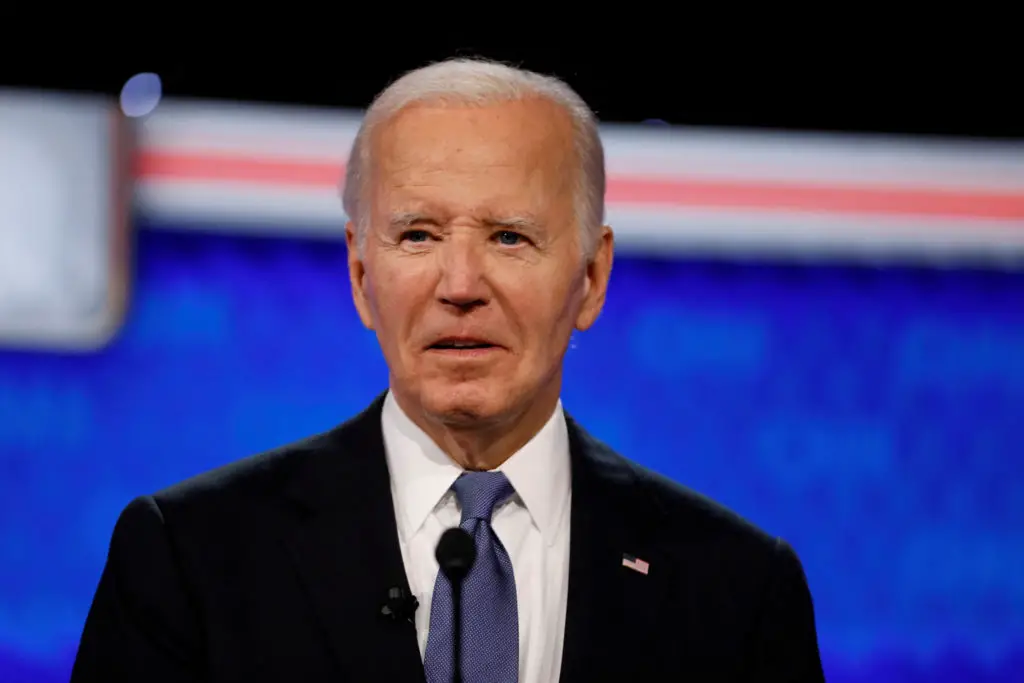In recent comments that have sparked intense debate across the political spectrum, Representative Jasmine Crockett (D–TX) has once again found herself at the center of controversy over her views on national allegiances and the state of American governance. During a recent appearance on the “Politics War Room” podcast—a program known for its incisive political commentary—Crockett suggested that her current political position had become unsustainable. In her remarks, she proposed that former President Joe Biden should consider withdrawing from public life and retreating to his home in Rehoboth Beach, Delaware, as a means of escaping the mounting public scrutiny and controversy surrounding his legacy.
A Controversial Perspective on Political Leadership
Representative Crockett’s comments, which quickly circulated on social media and in various opinion pieces, reflect a broader debate about Biden’s role in contemporary American politics. According to veteran Democratic strategist James Carville—whose recent commentary has also contributed to the growing conversation—Biden’s public persona has suffered greatly due to his own decisions. Carville contends that Biden has isolated himself from both the general public and influential members within his own party. “He’s done so much to tarnish his image that people simply do not want to listen to him anymore,” Carville explained during the podcast. In his view, Biden’s current approach not only undermines his ability to lead but also inflicts damage on the Democratic Party’s overall message.
Carville argued that Biden’s increasing distance from public discourse is not a consequence of external pressures or partisan infighting, but rather the result of choices he has made over recent years. Among these choices are his repeated assertions of potential electoral success had he remained in the presidential race longer—claims that Carville dismisses as unrealistic given today’s political climate and evolving public sentiment. The strategist also pointed to a series of public disputes involving Biden, including disagreements with First Lady Jill Biden and contentious exchanges with political commentators, as evidence that Biden’s credibility is waning. In Carville’s assessment, Biden’s long career, once characterized by decades of public service, now appears to be culminating in a “final act” that fails to resonate with the American electorate.
The Broader Context: Shifts in the Democratic Party
Crockett’s remarks must be viewed within the larger context of evolving party dynamics and ideological shifts within the Democratic Party. In recent years, a growing rift has emerged between the more traditional, centrist elements of the party and its progressive wing. The progressive “Squad”—of which Crockett is a part—has been at the forefront of challenging established policies and advocating for a more radical rethinking of the nation’s priorities. Prominent members of this group, including Representatives Ilhan Omar (D–MN) and Rashida Tlaib (D–MI), have frequently made headlines for their unfiltered opinions on both domestic and international issues. Similarly, Representative Cori Bush (D–MO) has drawn criticism for her support of controversial policy proposals, such as defunding the police, despite growing concerns over public safety in her district.
Within this broader context, Crockett’s recent comments have been interpreted by many critics as emblematic of a progressive trend that some argue undermines traditional American patriotism and national pride. By explicitly “rooting” for Canada and Mexico, nations she praised for their willingness to confront what she described as a dysfunctional regime in the United States, Crockett appears to be endorsing an external model of governance over a commitment to domestic solutions. Critics argue that such rhetoric dismisses the sacrifices and values that have long underpinned American society, suggesting instead that the solution to the country’s problems lies outside its borders.
Watch:


